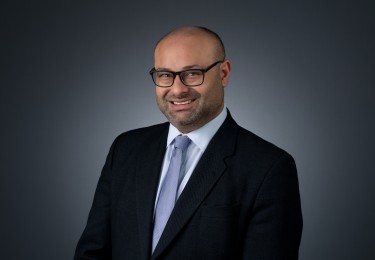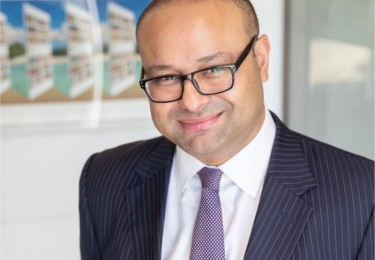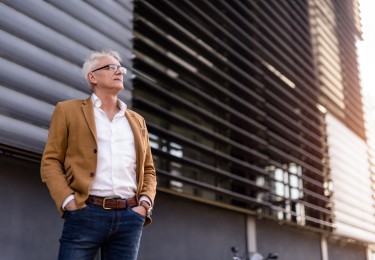
So, you’re a B Corp. So what?
As Coutts continues on its B Corp journey, the significance of this accreditation is becoming increasingly apparent, and the narrative around Environmental, Social and Governance (ESG) criteria is shifting.
3 min read
Become A Client
When you become a client of Coutts, you will be part of an exclusive network.
As companies around the world strive to be more sustainable, it is imperative they show their customers that the commitments they make are more than mere words. The UN’s COP26, at which Coutts is a Principal Partner, is a space where this is paramount. But once the conference ends, how do you build the proof points behind the purpose and best measure the positive impact your business is making? And how do you hold yourself accountable?
An increasing number of organisations, including Coutts, are doing this by being certified as a B Corporation. It is the only certification that measures a company’s entire social and environmental performance, and it is fast becoming the bellwether for businesses wanting to show their commitment to building a better future.
So, what does it mean to be a B Corp, and what difference does it make?
Mary Johnstone-Louis, Chair of B Lab UK, which certifies B Corps and is leading a global charge towards sustainable economic systems, says, “Being a B Corp is a platform for securing long-term commitments to stakeholders in a context where talk is cheap.
“There is an old, long-held view that business sits here, and society sits there, the two separated from one another. This has never been true. It’s always been a fallacy. Whether it’s on diversity, whether it’s on environmental impact, society is increasingly looking to business to demonstrate impact, to demonstrate its right to operate, and to demonstrate its value add.”
Profit with purpose
B Corps are for-profit companies that are deliberately committed to delivering on change that is built on true innovation. Innovation that is not extractive to people and the planet, but which creates regenerative and inclusive businesses.
Post-Covid, people are not only assessing their individual impact but also the impact of the companies they support. The pandemic has caused people to think long and hard about what is important to them and what they demand of the companies providing them with products and services.
Marcelo Behar, Vice President of Sustainability at the B Corp Natura & Co, says, “We always think of business with a triple-bottom-line criteria: considering the social angle and environmental angle as importantly as the economic one. We decided that becoming a B Corp would be the best way to not only connect with a larger community but to give transparency to our practices.”
A company cannot simply become a B Corp through self-assignation; they must achieve a specific standard on the B Impact Assessment. The rigorous, independent, assessment requires businesses to score highly in five key areas: governance, workers, customers, community, and the environment.
Being clear on what matters
Transparency is a core feature of the B Corp, with any member of the public able to look up a company and find its impact score across the five areas. To Mary Johnstone-Louis, this willingness to put into the public domain what might be seen as sensitive information, is a demonstration of leadership that differentiates organisations that are willing to walk the walk from those that will just talk the talk.
The transparency and ongoing commitment needed to be a B Corp were key reasons why our CEO, Peter Flavel, decided it was the right journey for Coutts to pursue. “As we started to put together our ESG plans several years ago,” he says, “we asked, ‘How are we going to measure ourselves? How are we going to define success?’ We didn’t want this to be just words, we wanted our people to enact this every day.” Coutts current B Corp score is 83.2, above the pass mark but an indicator of how we can improve.
“We knew of B Corp, and initially started it as a form of measurement,” says Peter. “But then we realised as we got into the accreditation process that it covers governance, it covers staff, it covers the clients, it covers the community, it covers the environment. The process is a journey in itself.”
“We didn’t want this to be just words, we wanted our people to enact this every day.”
Peter Flavel - CEO, Coutts
A Growth community
Helping Coutts traverse that journey is the community of like-minded businesses that are also committed to a path of continual improvement. Coutts can count numerous businesses as clients, so there is the opportunity to encourage other organisations to make the first step to becoming a B Corp.
As Mary Johnstone-Louis points out, it can be extremely difficult for organisations to know where or how to implement solutions to problems that are ingrained.
“They don’t know how to deliver on some of their commitments,” she says, “because the issues are systemic, they require collaboration. There is a need for a systems-level view of the challenges and the role that business plays in society. That is why we love the fact that B Corps talk about systems change and that they talk about community.”
The community is big and growing, with over 4,000 certified B Corps in 77 countries and more than 150 sectors. In the UK, there are 600 B Corps, and membership is quickly growing with a long waiting list to become certified. There is an ambitious goal for 2025 that would see five million people in the UK employed by B Corps.
Marcelo Behar sees this community as a “village” helping each other move towards that same goal of purpose, profit, and impact. It’s a perfect metaphor: being an active member of the B Corp community is about sharing best practices between sustainable businesses – for example, setting up workshops and learning from one-another on what works well.
The key is to bring back lessons to embed within business models to drive forward sustainable change. Peter Flavel feels that Coutts can play a role as a village leader and ask the question to clients and peers: “How do we get there together?”
For more information about B Corp and transitioning to a sustainable business model, contact Coutts Sustainability Director Alison Robb.
Find out more about Coutts and B Corp.






